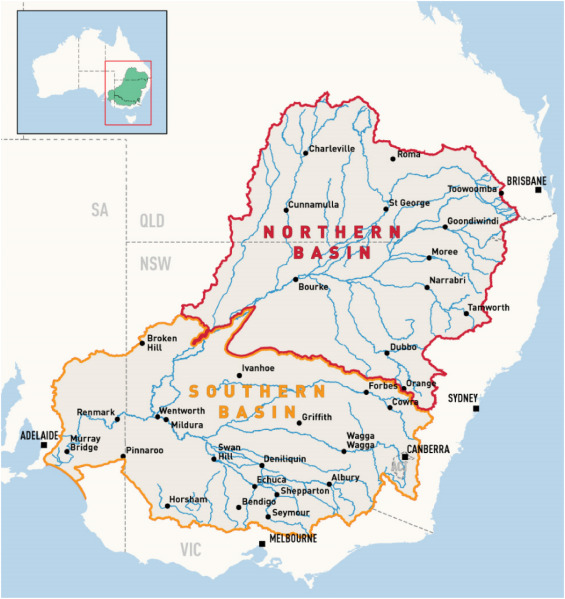'Good intentions' Murray-Darling Basin water program drains even more water from the system
A new report has found irrigators using a program designed to cut down on water use, have ended up taking more out of the Murray Darling river system.
Australia is more than halfway through implementation of the Murray Darling Basin Plan and as at the start of 2019, has spent over $6 billion in buybacks and modernising irrigation infrastructure in the Murray-Darling Basin, but in many cases it has simply funded even greater extraction of water.
That's the findings of peer-reviewed research covering economics, law and ecology that examined 2481 farm surveys in the Murray-Darling Basin and water consumption data.
Published in the Resources, Conservation & Recycling journal, the paper found money spent to help farms use water more efficiently actually encouraged those enterprises to plant thirstier perennial crops, such as nuts.
Those billions in subsidised works, such as lining canals or introducing drip irrigation, "seem to have a perverse water extraction outcome and actually increased water extraction by recipients", the paper found.
Using data for the southern basin, the so-called rebound effect - in which improved water productivity exceeds efficiency gains - resulted in beneficiaries increasing water use by 21-28 per cent.
"No economist was surprised by the outcome," said Professor Sarah Wheeler, Environment Institute committee member, lead author and a researcher from Adelaide University's Centre for Global Food and Resources (GFAR). "It was warned about from the very beginning" of the plan.
Recent rains and the prospect of more have helped ease the drought. Still, how governments respond to the long dry spell - and seek economy-boosting policies to restart growth after COVID-19 recedes - could determine whether the underlying woes facing our farming are eased or exasperated.
[caption id="attachment_14878" align="alignnone" width="565"]
 Fig. 1. Murray-Darling Basin in Australia. Source: Adapted from MDBA (2015)[/caption]
Fig. 1. Murray-Darling Basin in Australia. Source: Adapted from MDBA (2015)[/caption]Dr Emma Carmody, a lawyer from the Environment Defender's Office and another of the paper's authors, said the overall $13 billion Basin Plan was supposed to deliver a cut in water use of as much as a 20 per cent.
Instead, poor monitoring, particularly of groundwater use and the building of dams to catch flood waters, meant the environment is getting much less than taxpayers have been led to believe.
"There are thousands of bores in the Murray Darling Basin and a lot of them are not metered," Dr Carmody said.
The paper cited a case study of the Condamine-Balonne River that identified almost 400 gigalitres of the annual 870.6 GL was not monitored, and of the meters used many did not comply with national standards.
Worse, extraction estimates assumed there were no new or expanded storages since 2000.
"If we want a thriving, sustainable irrigation industry as water becomes increasingly scarce, we have to be absolutely committed to using the latest technology to properly measure all extractions," Dr Carmody said, adding real-time readings of usage would help "the industry to improve its social licence as users would be able to produce evidence of compliance with relevant laws".
Richard Kingsford, a University of NSW ecologist and an author of the paper, said getting "more crop per drop" hadn't solved the declining health of the river system.
Instead, taxpayers' funds would have been better spent on buying back entitlements to ensure water consumption fell.
"This isn't a magic pudding - the water has to come from somewhere," Professor Kingsford said.
A spokeswoman for the Murray-Darling Basin Authority said "the purchase of water entitlements and modernisation of irrigation infrastructure are effective mechanisms to reverse the over-allocation of water in the Basin, in accordance with the Basin Plan".
"The MDBA has active oversight of state government compliance with the rules of water use in the Basin," she said, adding "the states are progressively strengthening compliance as part of the Compliance Compact, especially in the northern Basin where improved water metering is a priority".
Original article featured on SMH.
Professor Sarah Wheeler has spoken to ABC Radio about the current findings.

Newsletter & social media
Join us for a sensational mix of news, events and research at the Environment Institute. Find out about new initiatives and share with your friends what's happening.
